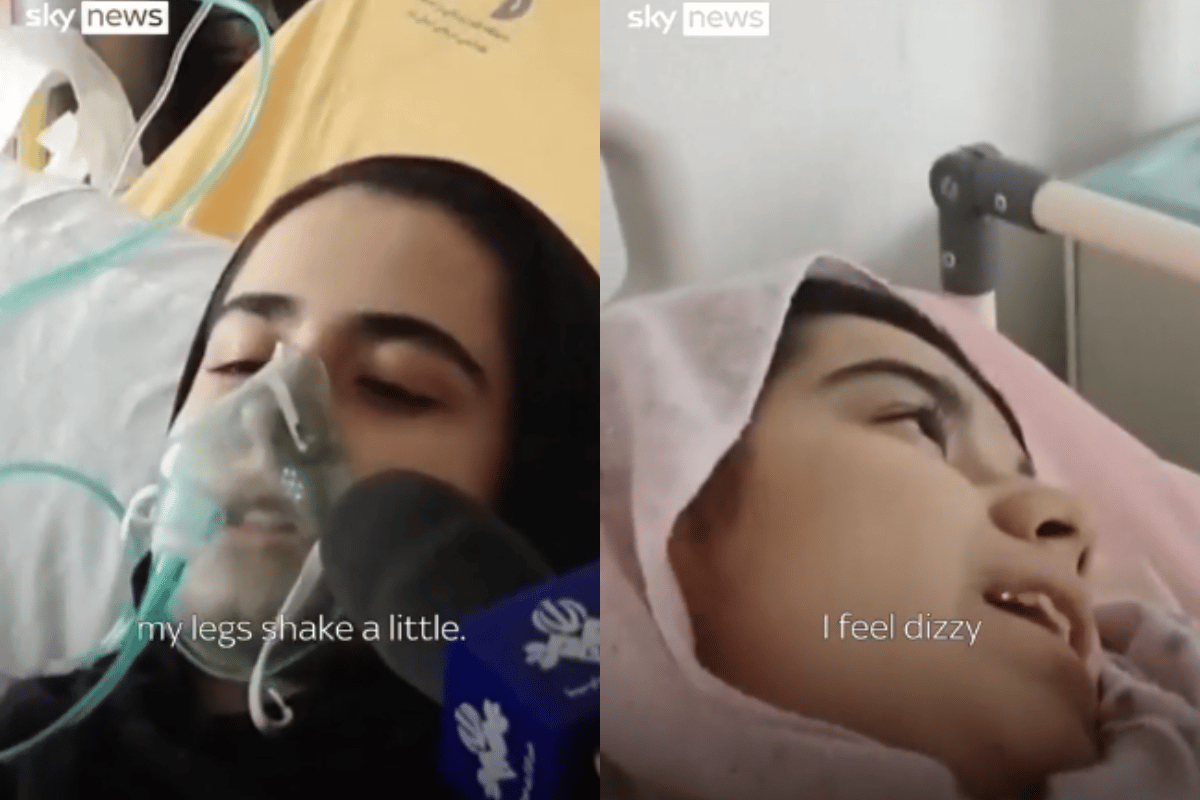
Right now, dozens of school girls in Iran are ending up in hospital beds.
Over the past three months, hundreds of girls have reportedly been poisoned in schools around the country, according to Iran's Etemad news agency.
Authorities have acknowledged suspected attacks at more than 50 schools across 21 of Iran's 30 provinces since November.
Videos on social media show girls falling ill, feeling nauseous or suffering heart palpitations. Others complained of headaches.
"I feel pain in my chest and when I walk my legs shake a little," an unidentified school girl said in a video shared by Sky News.
Parents have been seen gathering at schools to take their children home, while some students have been taken to hospitals by ambulance or buses.
A girl at a school in the Iranian city of Semnan, Semnan province is unable to walk amid gas poison attacks at her school and on school girls across the country. #Iran's government has known about the attacks since November yet has not stopped the poisoning of school girls to… https://t.co/CmQooaGvRF pic.twitter.com/qQcQM5htlV
— IranHumanRights.org (@ICHRI) March 6, 2023
